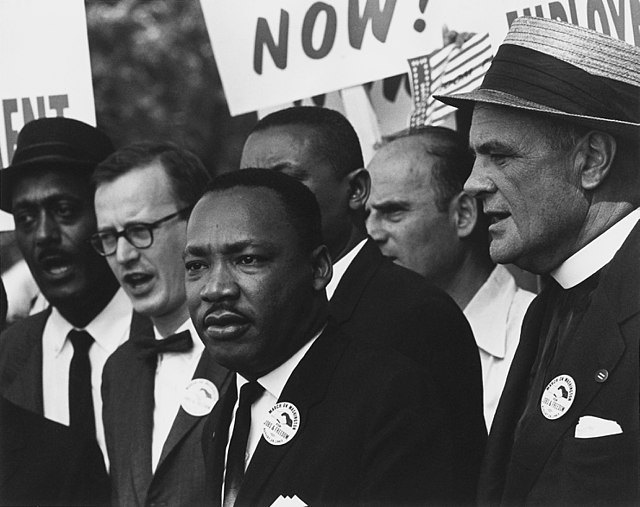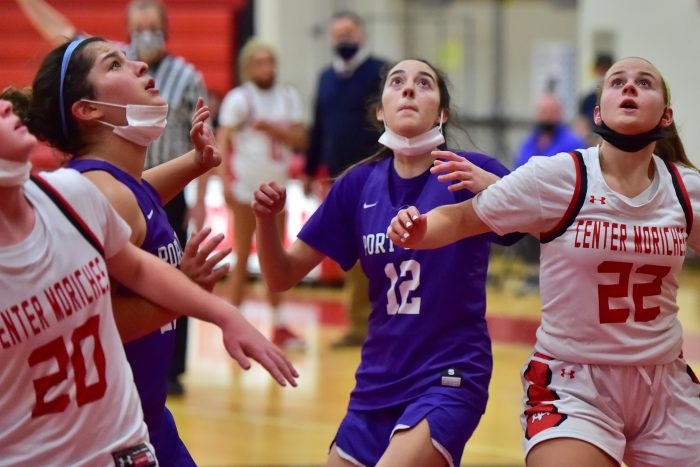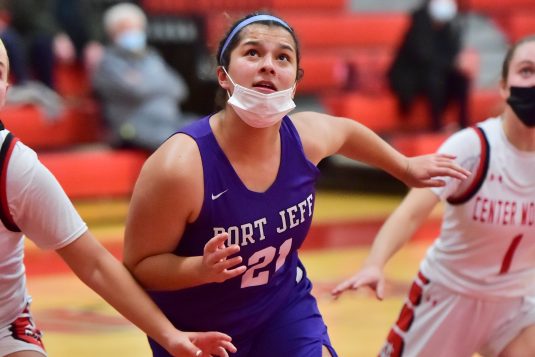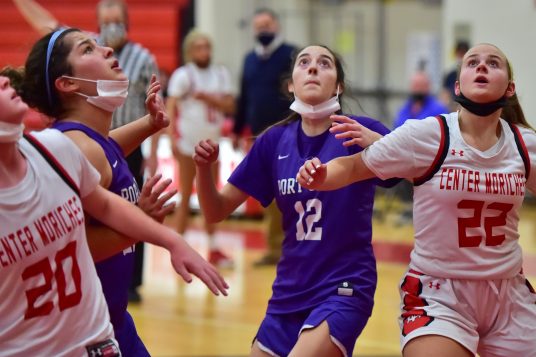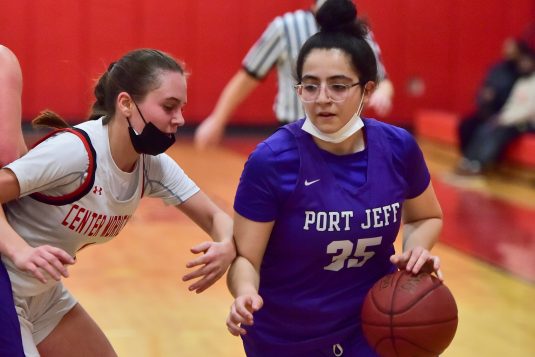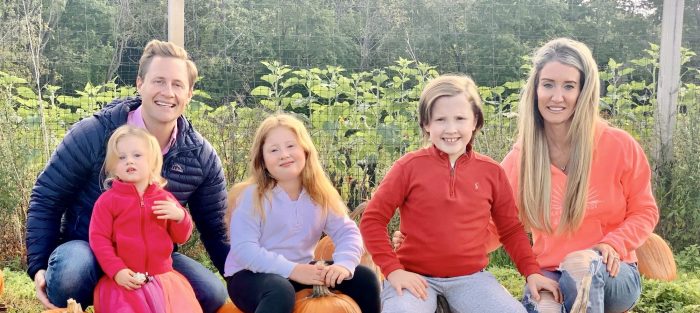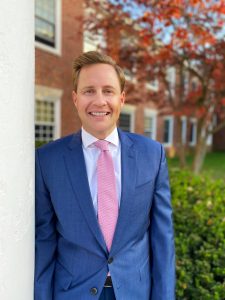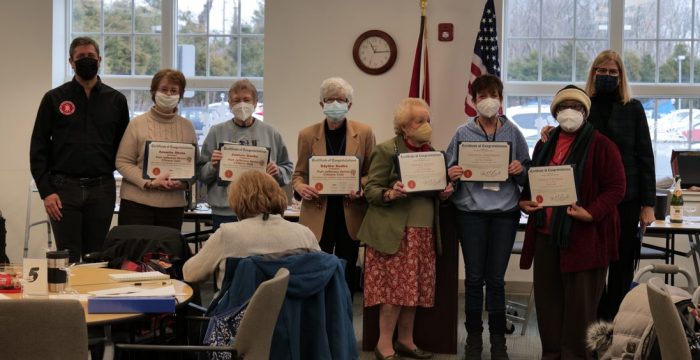The Port Jefferson community has come together to mourn the loss of one of their own, 11-year-old Aida Ramonez who died unexpectedly Jan. 5.
On Saturday, Jan. 15, several dozen people gathered on the lawn of the First Presbyterian Church in the village to pray and remember the vibrant, young girl who was taken far too soon.
“Aida was something else,” said her mother, Lolita. “She was extremely outgoing. She would stick up for her friends, was anti-bullying and absolutely loved animals and her life.”
The Port Jefferson middle schooler had moved with her family from Mastic Beach just three years prior to her death, but in the short amount of time she graced the village, she touched the lives of dozens of people — young and old.

During Saturday’s vigil, classmates of the sixth-grader held onto sunflowers, Aida’s favorite flower. Small white lanterns were lit, decorated with purple ribbons while prayers were said and “Amazing Grace” was sung.
Nicole Jacobs said that Aida befriended her daughter in school after the Ramonez family moved to the district. The two girls would go trick-or-treating on Halloween together and visit the water park in the summer.
“She was very wise for her age,” Jacobs said. “She was so compassionate. Very loving and free-spirited. She was such a good kid, finding the positive in any situation and who sought out the kids who didn’t always fit in.”
But along with being the girl who chose to be a friend to anyone and everyone, her true passion was animals, Lolita said.
“We nicknamed her the chicken whisperer,” she laughed, fondly.
Lolita went on to remember how one of the family’s chickens fell ill. The chicken, who barely approached anyone else, trusted Aida and allowed her to feed its medicine.
“She’d massage the chicken and say, ‘Don’t you give up on me!’” Lolita said. “She wanted to be a vet.”
The chicken survived and is thriving to this day.
Aida also loved art — it was one of her favorite subjects in school along with science.
“She was an incredible artist and was an excellent student,” Lolita said. “She even made it to the honor roll at the end of their marking period. She was so proud of that.”
Aida’s former fifth-grade teachers at Edna Louise Spear Elementary School, Laura Kelly and Paige Lohmann, said in a statement that Aida had “so many wonderful qualities and gifts that made her stand out.”
“Her love for her family, care for animals and loyalty to her friends were most important to her. At such a young age, Aida believed in using her voice to speak up for causes that she believed in. She had a keen sense of who she was and how she can make a difference in the world through her thoughtful words and caring actions. We will always remember Aida and her high hopes and dreams for life and the world around her,” the teachers said.
During Saturday’s event, Robert Neidig, assistant superintendent of Port Jefferson School District, remembered his student.

“Aida, although she was a quiet young girl, had such an intense focus of maturity about her,” he said. “She once wrote that one of the things that made her happiest was being kind to others. It is this endearing quality that helped brighten up the spaces that she inhabited and allowed her to have such an enormous impact on our entire community.”
Neidig went on to mention, that the outpouring support of the community standing together on that cold Saturday was a true testament of what Aida always preached — kindness.
Mayor Margot Garant said that although tragedy strikes, the vigil proves how Port Jefferson comes together in times of need.
“The ceremony was moving and shows that here in Port Jefferson when we lose a resident, young or old, our community is impacted as if it were our very own,” she said. “This is what we mean by ‘Port Jeff Proud,’ and ‘Port Jeff Strong.’”
Trustee Kathianne Snaden’s daughter is in Aida’s class and she said it breaks her heart to see the community lose someone so young and so vibrant.
“My heart and prayers are with the Ramonez family,” she said. “If there is any silver lining, it’s seeing the community as a whole come together to support and uplift Aida’s family, and showed we can help each other in a time of need. We are stronger together, and I hope that the outpouring of love that day brought some peace to her family. We are here for them.”
Along with the vigil, a Meal Train was created for the family the day her death was announced, Jan. 6.
Jacobs, who helped create the link, said that within two hours of it being posted, the first four weeks were booked with different types of meals to be dropped off at the Ramonez home. The Meal Train was then extended an extra two weeks, and booked in only one hour.
“People have been reaching out every day asking how they can help,” Jacobs said. “More than 40 gift cards were left on my front porch to be given to the family.”
Lolita said she and her family are overwhelmed by everyone’s kindness and knows that Aida would be “flattered beyond belief.”

“Aida was a free spirit who loved the ocean,” she said. “She was not afraid of death or any of life’s phases.”
One of Aida’s favorite songs was “Circle of Life” from “The Lion King.” She loved fishing, anime and gymnastics.
“She was an adrenaline junkie,” Lolita said.
Her mother added that Aida’s remains have been cremated and her ashes will be thrown into the ocean in Puerto Rico — one of the places she loved to visit, along with Ecuador.
“She would like her friends and loved ones to remember her with joy, especially when they go to her happy place, the beach,” she said. “She will be with them always in spirit and would love for everyone to stay positive and accomplish their goals.”
Aida is survived by her mother Lolita, father Juan and older brother Grayson, as well as everyone near and far who’s lives she touched.
To continue helping the Ramonez family following this loss, Nicole Jacobs is collecting gift cards to be regularly delivered to them. Community members who would like to send their condolences can email [email protected] for more information.

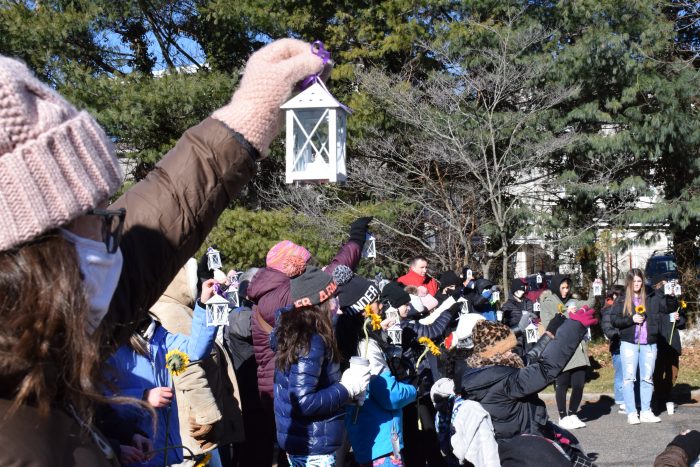
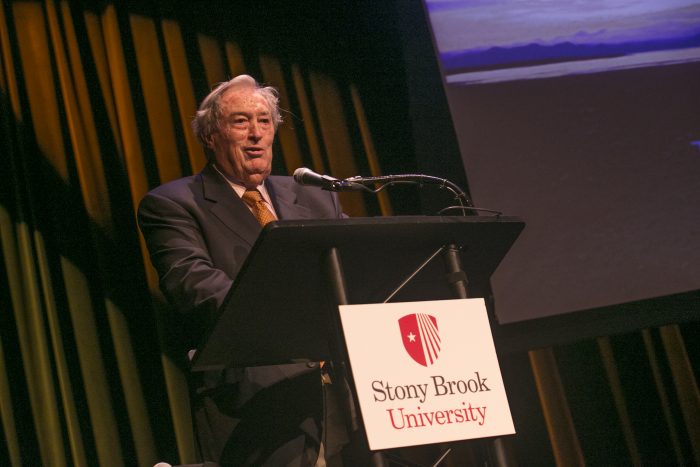
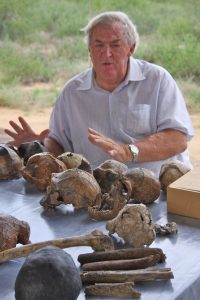


 It’s hard to believe another new year has begun. There is so much tension and turmoil across our American landscape that is infected with a new COVID variant that is highly contagious. Our essential workers continue to be our heroes, as they quietly take on longer hours and additional shifts to keep people safe and healthy. We are blessed to have three extraordinary hospitals in our larger community: St. Charles, Mather, and Stony Brook University Hospital.
It’s hard to believe another new year has begun. There is so much tension and turmoil across our American landscape that is infected with a new COVID variant that is highly contagious. Our essential workers continue to be our heroes, as they quietly take on longer hours and additional shifts to keep people safe and healthy. We are blessed to have three extraordinary hospitals in our larger community: St. Charles, Mather, and Stony Brook University Hospital.